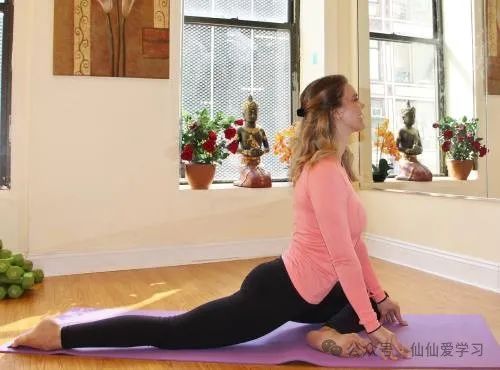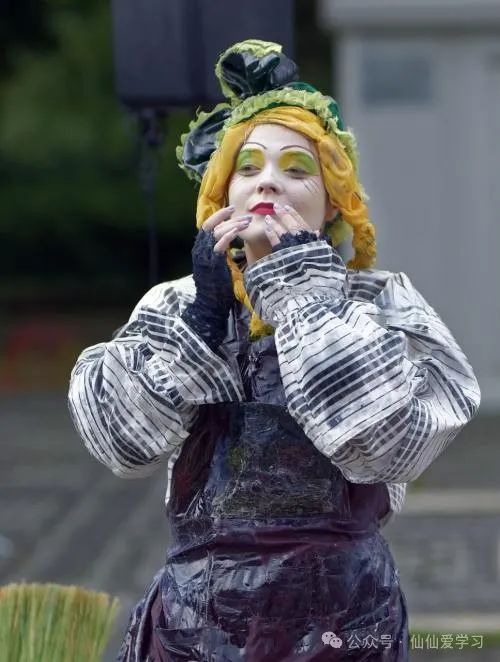卢锐军老师薪酬绩效专栏中国式绩效管理+差异化分配我学了,感觉非常不错,受益匪浅!
需要的宝子+\\/♥:nzc890
相关其他课程都有:咨询方式♥V:nzc890



.
"The next day I managed, as I have said, to go over the room thoroughly with a vacuum cleaner--a new one of my own which I had bought myself. But tests of the dust which I got from the floors, curtains, and furniture showed nothing at all. As a last thought I had, however, cleaned the mattress of the bed and the cracks and crevices in the brass bars. Tests of that dust showed it to be extremely radioactive. I had the dust dissolved, by a chemist who understands that sort of thing, recrystallised, and the radium salts were extracted from the refuse. Thus I found that I had recovered all but a very few milligrams of the radium that had been originally purchased in London. Here it is in this deadly tube in the leaden casket.
"It is needless to add that the night after I had cleaned out this deadly element the maid slept the sleep of the just--and would have been all right when next I saw her but for the interference of the unjust on whom I had stolen a march."
Craig paused while the lawyers whispered again to their clients. Then he continued: "Now three persons in this room had an opportunity to secrete the contents of this deadly tube in the crevices of the metal work of Mrs. Close's bed. One of these persons must have placed an order through a confidential agent in London to purchase the radium from the English Radium Corporation. One of these persons had a compelling motive, something to gain by using this deadly element. The radium in this tube in the casket was secreted, as I have said, in the metal work of Mrs. Close's bed, not in large enough quantities to be immediately fatal, but mixed with dust so as to produce the result more slowly but no less surely, and thus avoid suspicion. At the same time Mrs. Close was persuaded--I will not say by whom--through her natural pride, to take a course of X-ray treatment for a slight defect. That would further serve to divert suspicion. The fact is that a more horrible plot could hardly have been planned or executed. This person sought to ruin her beauty to gain a most selfish and despicable end."
Again Craig paused to let his words sink into our minds.
"Now I wish to state that anything you gentlemen may say will be used against you. That is why I have asked you to bring your attorneys. You may consult with them, of course, while I am getting ready my next disclosure."
As Kennedy had developed his points in the case I had been more and more amazed. But I had not failed to notice how keenly Lawrence was following him.
With half a sneer on his astute face, Lawrence drawled: "I cannot see that you have accomplished anything by this rather extraordinary summoning of us to your laboratory. The evidence is just as black against Dr. Gregory as before. You may think you're clever, Kennedy, but on the very statement of facts as you have brought them out there is plenty of circumstantial evidence against Gregory--more than there was before. As for anyone else in the room, I can't see that you have anything on us--unless perhaps this new evidence you speak of may implicate Asche, or Jameson," he added, including me in a wave of his hand, as if he were already addressing a jury. "It's my opinion that twelve of our peers would be quite as likely to bring in a verdict of guilty against them as against anyone else even remotely connected with this case, except Gregory. No, you'll have to do better than this in your next case, if you expect to maintain that so-called reputation of yours for being a professor of criminal science."
As for Close, taking his cue from his attorney, he scornfully added: "I came to find out some new evidence against the wretch who wrecked the beauty of my wife. All I've got is a tiresome lecture on X-rays and radium. I suppose what you say is true. Well, it only bears out what I thought before. Gregory treated my wife at home, after he saw the damage his office treatments had done. I guess he was capable of making a complete job out of it--covering up his carelessness by getting rid of the woman who was such a damning piece of evidence against his professional skill."
Never a shade passed Craig's face as he listened to this tirade. "Excuse me a moment," was all he said, opening the door to leave the room. "I have just one more fact to disclose. I will be back directly."
Kennedy was gone several minutes, during which Close and Lawrence fell to whispering behind their, hands, with the assurance of those who believed that this was only Kennedy's method of admitting a defeat. Gregory and Asche exchanged a few words similarly, and it was plain that Asche was endeavouring to put a better interpretation on something than Gregory himself dared hope.
As Kennedy re-entered, Close was buttoning up his coat preparatory to leaving, and Lawrence was lighting a fresh cigar.
In his hand Kennedy held a notebook. "My stenographer writes a very legible shorthand; at least I find it so--from long practice, I suppose. As I glance over her notes I find many facts which will interest you later--at the trial. But--ah, here at the end--let me read:
"'Well, he's very clever, but he has nothing against me, has he?'
"'No, not unless he can produce the agent who bought the radium for you.'
"'But he can't do that. No one could ever have recognised you on your flying trip to London disguised as a diamond merchant who had just learned that he could make his faulty diamonds good by applications of radium and who wanted a good stock of the stuff.'
"'Still, we'll have to drop the suit against Gregory after all, in spite of what I said. That part is hopelessly spoiled.'
"'Yes, I suppose so. Oh, well, I'm free now. She can hardly help but consent to a divorce now, and a quiet settlement. She brought it on herself--we tried every other way to do it, but she--she was too good to fall into it. She forced us to it.'
"'Yes, you'll get a good divorce now. But can't we shut up this man Kennedy? Even if he can't prove anything against us, the mere rumour of such a thing coming to the ears of Mrs. Tulkington would be unpleasant.'
"'Go as far as you like, Lawrence. You know what the marriage will mean to me. It will settle my debts to you and all the rest.'
"'I'll see what I can do, Close. He'll be back in a moment.'"
Close's face was livid. "It's a pack of lies!" he shouted, advancing toward Kennedy, "a pack of lies! You are a fakir and a blackmailer. I'll have you in jail for this, by God--and you too, Gregory."
"One moment, please," said Kennedy calmly. "Mr. Lawrence, will you be so kind as to reach behind your chair? What do you find?"
Lawrence lifted up the plain black box and with it he pulled up the wires which I had so carefully concealed in the cracks of the floor.
"That," said Kennedy, "is a little instrument called the microphone. Its chief merit lies in the fact that it will magnify a sound sixteen hundred times, and carry it to any given point where you wish to place the receiver. Originally this device was invented for the aid of the deaf, but I see no reason why it should not be used to aid the law. One needn't eavesdrop at the keyhole with this little instrument about. Inside that box there is nothing but a series of plugs from which wires, much finer than a thread, are stretched taut. Yet a fly walking near it will make a noise as loud as a draft-horse. If the microphone is placed in any part of the room, especially if near the persons talking--even if they are talking in a whisper--a whisper such as occurred several times during the evening and particularly while I was in the next room getting the notes made by my stenographer--a whisper, I say, is like shouting your guilt from the housetops.
"You two men, Close and Lawrence, may consider yourselves under arrest for conspiracy and whatever other indictments will lie against such creatures as you. The police will be here in a moment. No, Close, violence won't do now. The doors are locked--and see, we are four to two."
V. The Seismograph Adventure
"Dr. James Hanson, Coroner's Physician, Criminal Courts Building," read Craig Kennedy, as he held a visitor's card in his hand. Then to the visitor he added, "Take a chair, Doctor."
The physician thanked him and sat down. "Professor Kennedy," he began, "I have been referred to you by Inspector O'Connor of the Detective Bureau. It may seem an impertinence for a city official to call on you for assistance, but--well, you see, I'm completely floored. I think, too, that the case will interest you. It's the Vandam case."
If Dr. Hanson had suddenly turned on the current of an induction coil and I had been holding the handles I don't think the thrill I received could have been any more sudden. The Vandam case was the sensation of the moment, a triple puzzle, as both Kennedy and myself had agreed. Was it suicide, murder, or sudden death? Every theory, so far, had proved unsatisfactory.
"I have read only what the newspapers have published," replied Craig to the doctor's look of inquiry. "You see, my friend Jameson here is on the staff of the Star, and we are in the habit of discussing these cases."
"Very glad to meet you, Mr. Jameson," exclaimed Dr. Hanson at the implied introduction. "The relations between my office and your paper have always been very satisfactory, I can assure you."
"Thank you, Doctor. Depend on me to keep them so," I replied, shaking his proffered hand.
"Now, as to the case," continued the doctor slowly. "Here is a beautiful woman in the prime of life, the wife of a very wealthy retired banker considerably older than herself--perhaps nearly seventy--of very fine family. Of course you have read it all, but let me sketch it so you will look at it from my point of view. This woman, apparently in good health, with every luxury money can buy, is certain within a very few years, from her dower rights, to be numbered among the richest women in America. Yet she is discovered in the middle of the night by her maid, seated at the table in the library of her home, unconscious. She never regains consciousness, but dies the following morning.
"The coroner is called in, and, as his physician, I must advise him. The family physician has pronounced it due to natural causes, the uremic coma of latent kidney trouble. Some of the newspapers, I think the Star among them, have hinted at suicide. And then there are others, who have flatly asserted it was murder."
The coroner's physician paused to see if we were following him. Needless to say Kennedy was ahead of him.
"Have you any facts in your possession which have not been given to the public yet?" asked Craig.
"I'm coming to that in a moment," replied Dr. Hanson. "Let me sketch the case first. Henry Vandam had become--well, very eccentric in his old age, we will say. Among his eccentricities none seems to have impressed the newspapers more than his devotion to a medium and her manager, Mrs. May Popper and Mr. Howard Farrington. Now, of course, the case does not go into the truth or falsity of spiritualism, you understand. You have your opinion, and I have mine. What this aspect of the case involves is merely the character of the medium and her manager. You know, of course, that Henry Vandam is completely under their control."
He paused again, to emphasise the point.
"You asked me if I was in possession of any facts which have not been given to the press. Yes, I am. And just there lies the trouble. They are so very conflicting as to be almost worse than useless, as far as I can see. We found near the unfortunate woman a small pill-box with three capsules still in it. It was labelled 'One before retiring' and bore the name of a certain druggist and the initials 'Dr. C. W. H.' Now, I am convinced that the initials are merely a blind and do not give any clue. The druggist says that a maid from the Vandam house brought in the prescription, which of course he filled. It is a harmless enough prescription--contains, among other things, four and a half grains of quinine and one-sixth of a grain of morphine. Six capsules were prepared altogether.
"Now, of course my first thought was that she might have taken several capsules at once and that it was a case of accidental morphine poisoning, or it might even be suicide. But it cannot be either, to my mind, for only three of the six capsules are gone. No doubt, also, you are acquainted with the fact that the one invariable symptom of morphine poisoning is the contraction of the pupils of the eyes to a pin-point--often so that they are unrecognisable. Moreover, the pupils are symmetrically contracted, and this symptom is the one invariably present in coma from morphine poisoning and distinguishes it from all other forms of death.
"On the other hand, in the coma of kidney disease one pupil is dilated and the other contracted--they are unsymmetrical. But in this case both the pupils are normal, or only a very little dilated, and they are symmetrical. So far we have been able to find no other poison than the slight traces of morphine remaining in the stomach after so many hours. I think you are enough of a chemist to know that no doctor would dare go on the stand and swear to death from morphine poisoning in the face of such evidence against him. The veriest tyro of an expert toxicologist could too easily confute him."
Kennedy nodded. "Have you the pill-box and the prescription?"
"I have," replied Dr. Hanson, placing them on the table.
Kennedy scrutinised them sharply. "I shall need these," he said. "Of course you understand I will take very good care of them. Is there anything else of importance"
"Really, I don't know," said the physician dubiously. "It's rather out of my province, but perhaps you would think it important. It's mighty uncanny anyhow. Henry Vandam, as you doubtless know, was much more deeply interested in the work of this medium than was his wife. Perhaps Mrs. Vandam was a bit jealous--I don't know. But she, too, had an interest in spiritualism, though he was much more deeply influenced by Mrs. Popper than she.
"Here's the strange part of it. The old man believes so thoroughly in rappings and materialisations that he constantly keeps a notebook in his pocket in which he records all the materialisations he thinks he sees and the rappings he hears, along with the time and place. Now it so happened that on the night Mrs. Vandam was taken ill, he had retired--I believe in another part of the house, where he has a regular seance-room. According to his story, he was awakened from a profound sleep by a series of rappings. As was his custom, he noted the time at which they occurred. Something made him uneasy, and he said to his 'control'--at least this is his story:
"'John, is it about Mary?'
"Three raps answered 'yes,' the usual code.
"'What is the matter? Is she ill?"
"The three answering raps were so vigorous that he sprang out of bed and called for his wife's maid. The maid replied that Mrs. Vandam had not gone to bed yet, but that there was a light in the library and she would go to her mistress immediately. The next moment the house was awakened by the screams of the maid calling for help, that Mrs. Vandam was dying.
"That was three nights ago. On each of the two succeeding nights Henry Vandam says he has been awakened at precisely the same hour by a rapping, and on each night his 'control' has given him a message from his dead wife. As a man of science, I attribute the whole thing to an overwrought imagination. The original rappings may have been a mere coincidence with the fact of the condition of Mrs. Vandam. However, I give this to you for what it is worth."
Craig said nothing, but, as was his habit, shaded his eyes with the tips of his fingers, resting his elbows on the arms of his chair: "I suppose," he said, "you can give me the necessary authority to enter the Vandam house and look at the scene of these happenings?"
"Certainly," assented the physician, "but you will find it a queer place. There are spirit paintings and spirit photographs in every room, and Vandam's own part of the house--well, it's creepy, that's all I can say."
"And also I suppose you have performed an autopsy on the body and will allow me to drop into your laboratory to-morrow morning and satisfy myself on this morphine point?"
"Certainly," replied the coroner's physician, "at any time you say."
"At ten sharp, then, to-morrow I shall be there," said Craig. "It is now eight-thirty. Do you think I can see Vandam to-night? What time do these rappings occur?"
"Why, yes, you surely will be able to see him to-night. He hasn't stirred from the house since his wife died. He told me he momentarily expected messages from her direct when she had got strong enough in her new world. I believe they had some kind of a compact to that effect. The rappings come at twelve-thirty."
"Ah, then I shall have plenty of time to run over to my laboratory before seeing Mr. Vandam and get some apparatus I have in mind. No, Doctor, you needn't bother to go with me. Just give me a card of introduction. I'll see you tomorrow at ten. Good-night--oh, by the way, don't give out any of the facts you have told me."
"Jameson," said Craig, when we were walking rapidly over toward the university, "this promises to be an uncommonly difficult case."
"As I view it now," I said, "I have suspicions of everybody concerned in it. Even the view of the Star, that it is a case of suicide due to overwrought nerves, may explain it."
"It might even be a natural death," Craig added. "And that would make it a greater mystery than ever--a case for psychical research. One thing that I am going to do to-night will tell me much, however."
At the laboratory he unlocked a glass case and took out a little instrument which looked like two horizontal pendulums suspended by fine wires. There was a large magnet near each pendulum, and the end of each pendulum bore a needle which touched a circular drum driven by clock-work. Craig fussed with and adjusted the apparatus, while I said nothing, for I had long ago learned that in applying a new apparatus to doing old things Craig was as dumb as an oyster, until his work was crowned with success.
We had no trouble in getting in to see Mr. Vandam in his seance-room. His face was familiar to me, for I had seen him in public a number of times, but it looked strangely altered. He was nervous, and showed his age very perceptibly.
It was as the coroner's physician had said. The house was littered with reminders of the cult, books, papers, curious daubs of paintings handsomely framed, and photographs; hazy overexposures, I should have called them, but Mr. Vandam took great pride in them, and Kennedy quite won him over by his admiration for them.
They talked about the rappings, and the old man explained where and when they occurred. They proceeded from a little cabinet or closet at one end of the room. It was evident that he was a thorough believer in them and in the messages they conveyed.
Craig carefully noted everything about the room and then fell to admiring the spirit photographs, if such they might be called.
"The best of all I do not display, they are too precious," said the old man. "Would you like to see them?"
Craig assented eagerly, and Vandam left us for a moment to get them. In an instant Craig had entered the cabinet, and in a dark corner on the floor he deposited the mechanism he had brought from the laboratory. Then he resumed his seat, shutting the box in which he had brought the mechanism, so that it would not appear that he had left anything about the room.
Artfully he led the conversation along lines that interested the old man until he seemed to forget the hour. Not so, Craig. He knew it was nearing half-past twelve. The more they talked the more uncanny did this house and room of spirits seem to me. In fact, I was rapidly reaching the point where I could have sworn that once or twice something incorporeal brushed by me. I know now that it was purely imagination, but it shows what tricks the imagination can play on us.
Rap! rap! rap! rap! rap!
Five times came a curiously hollow noise from the cabinet. If it had been possible I should certainly have fled, it was so sudden and unexpected. The hall clock downstairs struck the half-hour in those chimes written by Handel for St. Paul's.
Craig leaned over to me and whispered hoarsely, "Keep perfectly still--don't move a hand or foot."
The old man seemed utterly to have forgotten us. "Is that you, John?" he asked expectantly.
Rap! rap! rap! came the reply.
"Is Mary strong enough to speak to me tonight?"
Rap! rap!
"Is she happy?"
Rap! rap!
"What makes her unhappy? What does she want? Will you spell it out?"
Rap! rap! rap!
Then, after a pause, the rapping started slowly, and distinctly to spell out words. It was so weird and uncanny that I scarcely breathed. Letter after letter the message came, nineteen raps for "s," eight for "h," five for "e," according to the place in the alphabet, numer

更多关于卢锐军老师薪酬绩效专栏中国式绩效管理+差异化分配 sB的内容欢迎咨询。



课程我有,如你也有需要,可联系我小编❥(^_-):nzc890
~仅用于试 学及购买课程之参考,切勿用于其他用途,请支持购买正版课程!
免责申明:
公众号大部分资源来源于网络,仅供学习和交流使用,严禁商用!如有侵权请联系我们删除!,更多卢锐军老师薪酬绩效专栏中国式绩效管理+差异化分配 sB 内容,欢迎持续关注我们!! 本文中所有卢锐军老师薪酬绩效专栏中国式绩效管理+差异化分配 sB 相关图片均来自于CC0无版权图片,如有侵权尽快联系我们删除。





